Retooling Maritime Sector For Stronger Economic Growth – Integrity Alliance Perspectives
The Integrity Alliance has continued to make significant impacts in its role of anchoring reforms to prevent regression in port operations . Similarly, in embedding and institutionalising some of the reforms, Roland Ekama, x-rays the positives on how the Alliance has been able to promote and monitor compliance level of the Standard Operating Procedures (SOP) in port operations.
Excerpts
The Maritime Anti Corruption Network (MACN) and Convention on Business Integrity (CBI) in the last five years have continued to engage stakeholders from the shipping sub sector of the nation’s economy in a view to eradicate illegalities and other forms of corrupt practices.
With constructive and empirical analytical engagement at various fora over the years, the Integrity Alliance has continued to expose and explore numerous black spots by interfacing with the maritime players on the best way out of the quagmire bedevilling the sector, which has also led to about 200 individuals pledging their support in resolving corrupt practices within and outside port operations.
At least the Alliance has brainstormed with critical maritime players as part of its advocacy drive and commitment to achieve some level of successes in line with the Standard Operating Procedures (SOP).
Truck owners, ship owners, seafarers , unions, government agencies , freight forwarders, shippers , host communities etc have also gained positively from the innovations introduced by MACN and CBI .
The Alliance most recent event which held on Wednesday in Lagos tagged ” Retooling Maritime Sector For Stronger Economic Growth”, highlighted bottlenecks and encumbrances militating against maritime growth with modalities to tackle the shortfalls.
The purpose of the port users conference was to examine the policies, practices,opportunities, and next steps in addressing the lingering challenges in port operations which affects all categories of stakeholders in the maritime sector, including a review of how to expand the current gains and systems’ reforms in sectors of the industry.
Despite the successes, challenges of ports administration , users and operators at the ports continue to face lingering challenges that includes infrastructure gaps, regulatory inconsistencies, the duplication of roles by Ministries, Departments and Agencies (MDAS), high rate Of infractions by MDAS, cumbersome cargo clearing processes, absence of indigenous ship ownership, foreign exchange scarcity, multiple taxation, and poor state of roads to the ports.
These challenges, particularly in cargo clearance processes and nodal transportation, have create circumstances of excessive delays to import/export processes, red tape, rent seeking and corrupt demands, human and vehicular congestion in and around the ports and illegal charges leading to high costs of business operations.
Estimates indicate that the economic costs of these inefficiencies to the Nigerian government and private sector is as high as US$7 billion annually. Broken down, the Lagos Chamber of Commerce and Industry (LCCI) further calculates these annual losses to amount to N600 billion in customs revenues, $10 billion in non-oil exports, and some N2.5 trillion in corporate revenues, including a drop of 38-40% in industrial capacity utilization.
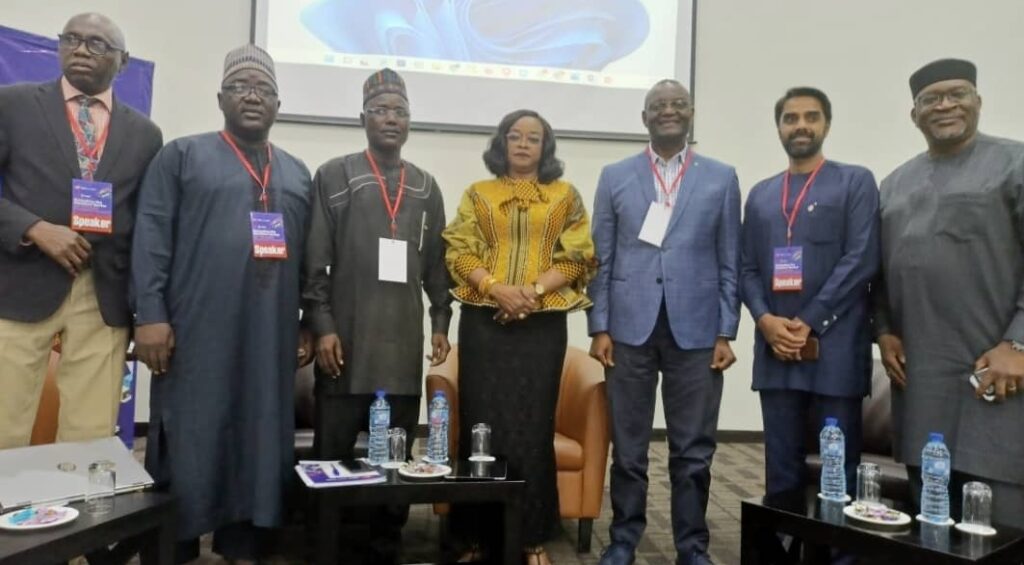
The conference also evaluate the extent to which the strategies and tool (e.g. Collective Action, introduction of the SOPs and Grievance Reporting Mechanisms (Help-
Desk, User Experience Diary), and Learning Management System) deployed through the MACN Nigeria Project have improved institutional compliance practices and the operating environment in the maritime sector, including the outcomes for different stakeholders.
Key leadership stakeholders from government, civil society and the private sector were on ground to deliver keynote addresses and present data to explain the state of port operations today, implementation of consequence management as part of a wider compliance framework, and capacity strengthening for port officials in the industry.
Setting the tone of discourse on Wednesday , 21 September 2022, at the port users Conference, the Executive Secretary Nigerian Shippers’ Council, Mr. Emmanuel Jime while speaking on the subject tagged ” The place of the maritime industry in Nigeria’s economy,”stressed that need for harmonisation of all agencies of government at the port to achieving seamless port operations.
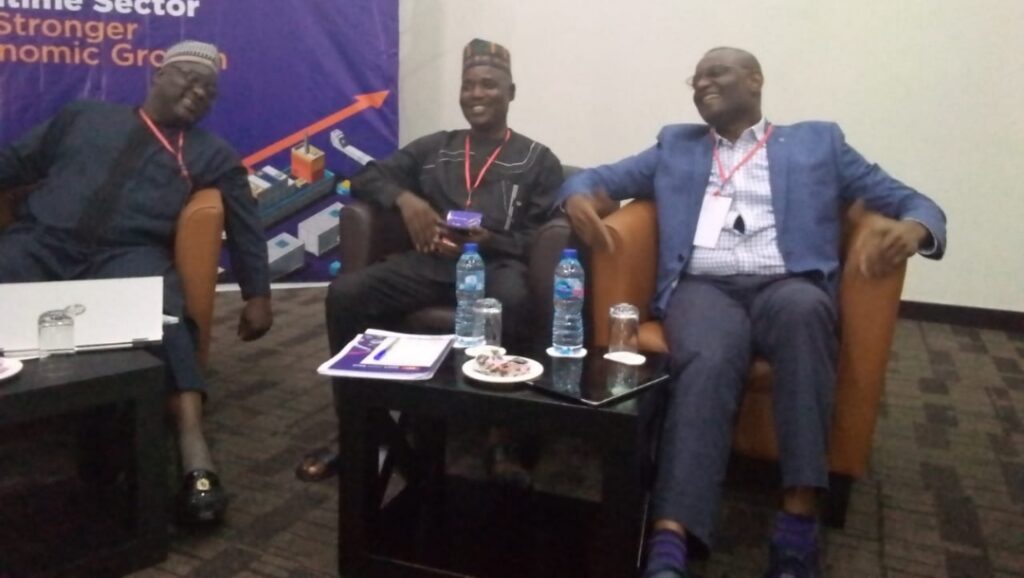
The Executive Secretary, Nigerian Shippers’ Council (NSC), Emmanuel Jime, informed that there should be synergy among government agencies involved in port operations to adequately address issues of overlapping functions, adding that ” Sustenance of the implementation of Ease of Doing Business Action Plans Speedy passage of proposed Port Reform Bills at the Presidency and National Assembly.”
Speaking further Jime stated that smaller countries in the sub region are gaining the shipping trade adding that Nigeria as the giant of Africa cannot compete with a tiny country like Togo.
He said ” Togo with a population of less than eight million people is generating more revenue in shipping than Nigeria with more than 200 million in population.
- Advertisement -
“According to the United Nations Conference of Trade and Development, (UNCTAD), Togo with a population of about 8 million people and GDP of $7 billion had a throughput of 1.7 million in 2020.
“While Nigeria with a population of 206 million people, GDP of about USD 429 Billion had a lesser TEU of 1.5 million in 2020. This is as a result of inefficiency in our port operations which led to diversion of Nigerian bound cargoes to other neighbouring countries,” he said.
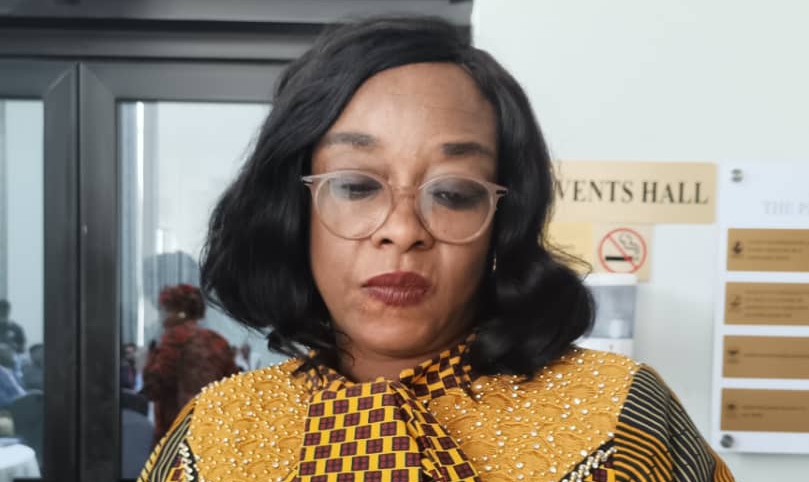
Evidently , the Executive Secretary reiterated that:“massive investment in infrastructure should be prioritized by the government. And I keep saying it anytime I talk about the Lekki Deep Seaport, unless we maximize multimodal means of transportation, we will just have a replica of Apapa port. And it is going to be a tragedy. Rail linkage is a critical aspect we should explore.
“Notwithstanding the achievement recorded so far by the implementation of the Manual, there is need for deliberate and conscious effort by the Federal Government and all relevant stakeholders in the industry to ensure that the right things are done for the sector to optimally contribute adequately to the GDP of the nation’s economy and also ensure that Nigerian trade benefit from both the regional trade agreement (ECOWAS ETLS) and the continental trade agreement (AfCFTA).Going forward, there should be deliberate effort in addressing the following;“Investment in Infrastructure: Provision of rail linkages and development of other transportation modes for cargo evacuation in the Nigerian Ports. Harmonization of all government agencies processes and procedures in port operations i.e. implementation of National Single Window. There should be synergy among government agencies involved in port operations to adequately address issues of overlapping functions. Sustenance of the implementation of Ease of Doing Business Action Plans Speedy passage of proposed Port Reform Bills at the Presidency and National Assembly.” he said.
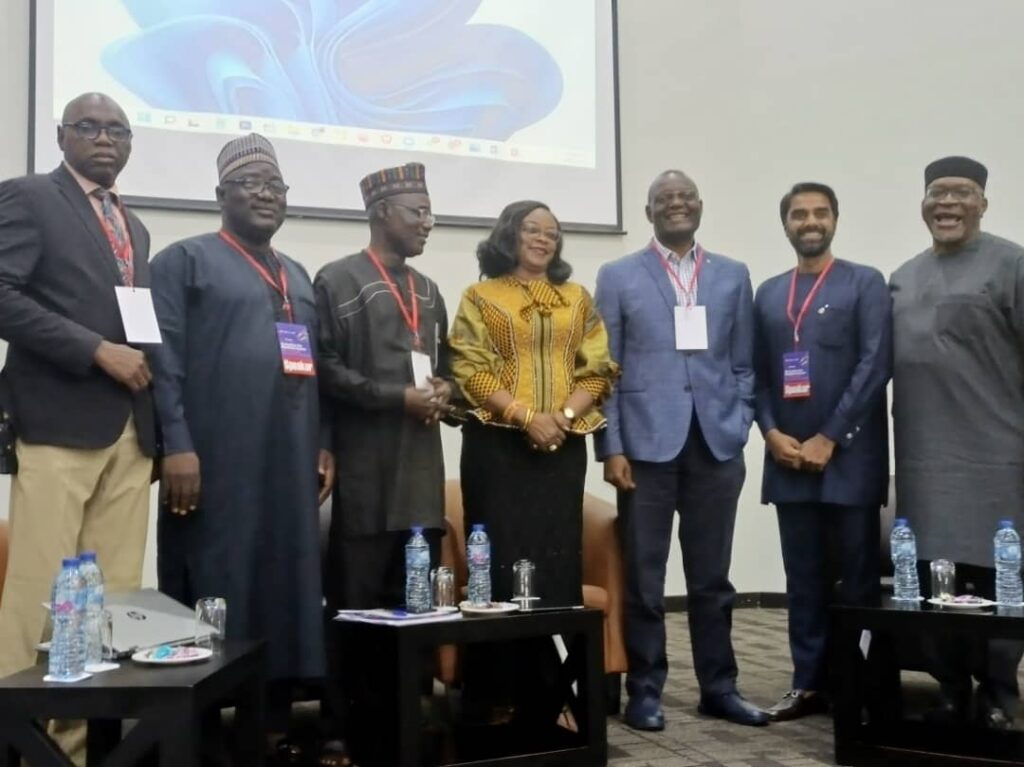
Also speaking at the event, the co-founder CBI Nigeria, Mr Soji Apampa said the purpose of the conference is to examine the policies, practices, opportunities, and next steps in addressing the lingering challenges in port operations which affects all categories of stakeholders in the maritime sector, including a review of how to expand the current gains and systems reforms in sectors of the industry.
He said: “The conference will evaluate the extent to which the strategies and tools (e.g. Collective Action, introduction of the SOPs and Grievance Reporting Mechanisms (Help Desk, User Experience Diary), and Learning Management System) deployed through the MACN Nigeria Project have improved institutional compliance practices and the operating environment in the maritime sector, including the outcomes for different stakeholders.
“Key leadership stakeholders. from government, civil society and the private sector will deliver keynote addresses and present data to explain the state of port operations today, implementation of consequence management as part of a wider compliance framework, and capacity strengthening for port officials in the industry” he said.
On his part Moses Fadipe, Coordinator General Port Standing Task Team PSTT affirmed that vessel dwell time has reduced because of the joint boarding by governments agencies at the ports.
Secretary, National Trade Facilitation Committee, Federal Ministry of Industry, Trade and Investment , Mr. Abdullahi Usman stressed the need for the eastern ports to viable in order for those ports to compete favourably with the Lagos seaports.
The Chairman, Apapa Local Government Area, Mrs. Idowu Adejumoke Sebanjo has lamented the high unemployment rate among indigenous youths in Apapa, despite the area being touted as the commercial centre of the nation’s economy.
She informed that on a daily basis her table is flooded with letters for financial help and resident have to grapple with the harassment of the social miscreants seeking jobs.
She also decried the rate at which investments in the port are rotting away because of lack of patronage which she credited to unbearable traffic congestion.
The local government chair said: “Since I resumed this office, I’ve come to understand that there’s so much poverty. People are struggling and have no jobs.
“For us in Apapa, revenue is an issue, unemployment is an issue. Millions and billions of money pass through my Local Government and none of this money is coming to the Apapa Local Government”.
She specifically, lamented that even from proceeds of the Nigerian Ports Authority electronic call up system, popularly called ‘eto’, the Local Government does not receive anything.
She added that, “Luckily for us, they’ve done some of our roads which are much better, but the trailers are still there. People have invested so much money. Look at ShopRite, same thing with the Amusement park where you can take your children. They have spent a huge amount of money to build up the place, but who is that parent that will say take my children to Apapa amusement park when the reality is that they are going to spend five hours on the road.
“The miscreants you are seeing on the road, yes today, the money they are collecting on the road is more than what any employer is going to pay them. So, most of them are not ready to work. They have seen and tasted the kind of money that they are making on the road. Even they themselves will frustrate whatever it is that the government wants to do but if we have strict policies, people will fall in line eventually”.
Caption:
National Coordinator, Port Standing Task Team (PSTT), Mr. Moses Fadipe (left); Secretary, National Trade Facilitation Committee, Federal Ministry of Industry, Trade and Investment (FMITI), Mr. Abdullahi Usman; Representative of Federal Ministry of Transportation, Mr. Solomon Zaks; Chairperson, Apapa Local Government, Mrs. Idowu Senbanjo; Executive Secretary, Nigerian Shippers’ Council (NSC), Mr. Emmanuel Jime; Associate Director, Maritime Anti-Corruption Network (MACN), Mr. Vivek Menon and Co-founder/Chief Executive Officer, Convention on Business Integrity (CBI) Nigeria, Mr. Soji Apampa at the CBI and MACN Port Users’ Conference held in Ikeja, Lagos on Wednesday.



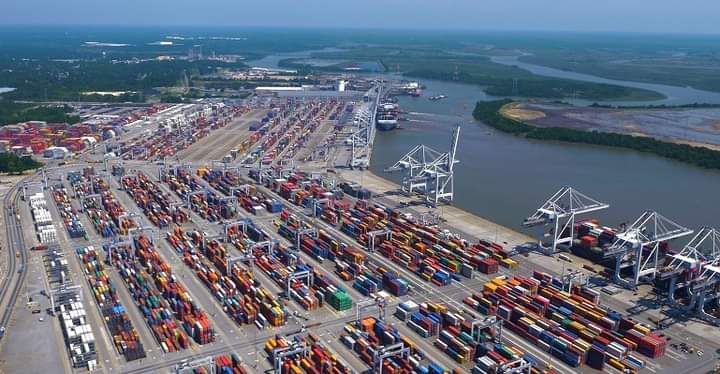
Comments are closed.